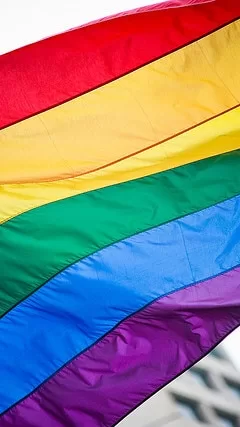- In short: NSW parliament voted to pass the bill criminalising gay conversion after a marathon debate overnight.
- The legislation passed unamended.
- What’s next? The legislation will take 12 months to take effect.
New South Wales has become the latest state to ban the practice of gay conversion therapy.
The NSW Upper House passed the bill with 22 votes in favour and four against after hours of debate In a marathon parliament sitting overnight.
The legislation will criminalise gay conversion as well as make it illegal for people to be taken out of NSW to undergo controversial therapy.
The Environment Minister and leader of the Legislative Council Penny Sharpe said the bill makes a statement that “harmful practices have no place” in NSW.
“What New South Wales has done today is to say to our LGBTQ community that you are fine just the way you are and that we will look after you and that we will protect you,” she said.
“New South Wales is better today with the passing of this legislation.”
None of the 15 amendments discussed during the night were passed, with the bill passed as it was introduced.
Attorney-General Michael Daley welcomed the move to make the practice a criminal offence.
“Conversion therapy proceeds on the basis that people in the LGBTQ+ community are broken, they need fixing,” he said.
“But we like them just the way they are.”
The debate officially ended at 6:30am on Friday.
Anna Brown, head of advocacy group Equality Australia called the move a “historic step”.
“It is a landmark moment for our state, where the trailblazing 78ers first bravely stepped out of the bars and into the streets in protest,” she said.
“This law will save countless people from a lifetime of pain and in some cases save lives.
“It sends a powerful message that we are whole and valid, just as we are.”
The legislation also provides redress to survivors through a civil pathway.
The NSW Anti-Discrimination Board can also disseminate information, conduct research and hold public inquiries about conversion practices.
Legislation banning conversion practices has already been passed in Victoria, the ACT and New Zealand — while Tasmania and South Australia are considering reforms.
